Here we go! With this daily, we launch the #Concorto2019 dailies, namely the necessary everyday guide to the Concorto Film Festival.
After a very classy Opening Party, which took place in the Gardens of the Ricci Oddi Gallery (photos and videos to be found on Facebook and Instagram), we start today with the very waited screenings in Parco Raggio.
Starting at 9 p.m. with She Runs, a wonderful short film by Chinese director Yang Qiu, famous for winning the Golden Palm with A Gentle Night, followed by In Our Synagogue, a Ukrainian little gem based on an unfinished novel by Kafka and performed entirely in Yiddish. All Inclusive is then the third short film in competition, showing us the irresistible and milky horror vacui of cruises, whereas the very sweet animation Mémorable touchingly describes the pathology of Alzheimer. Mina, by Martino Chiti and Daniele Stefanini, takes us to Nicaragua: we will then be able to dive into these experimental documentary themes with the directors themselves. At 11:30 p.m. we will, in fact, meet in the Greenhouse of Parco Raggio for the Midnite Talk, namely meetings and debates with the Concorto guests. We will end the evening with some screenings in competition: the poetical Russian animation Mitya’s Love and the funny Christmas story of Cadoul de Craciun (Christmas Gift).
The long-awaited screenings in the greenhouse with silent cinema also begin: Focus Portugal at 11.45 p.m. and the first roundup of the Deep Night horror and weird films, here are the reviews. As mentioned above, at 11.30 p.m. Midnite Talk with the directors of Mina, buffet and late-night
music.
See you tonight!
She Runs – Yang Qiu
As seen by Margherita Fontana
Presented for the very first time at Cannes 2019 in the frame of La Semaine de la Critique, She Runs describes with sobriety and accuracy the dramatic emotions that can be hidden behind an apparently small violence: the obligation imposed by the family on a young girl to attend a school aerobic dance course. Through claustrophobic shots and long silences, the director Qiu Yang, whose wonderful A Gentle Night was at Concorto 2017, provides us a social and political picture of today’s China, in which the desire to “run” is strong.
In our Synagogue – Ivan Orlenko
As seen by Yorgos Kostianis
For his very first film, Ukranian director, Ivan Orlenko drew inspiration from Franz Kafka’s unfinished novel: “In our synagogue”.
While Kafka’s original source is but one and a half pages long, Orlenko strived to build his own independent world around the author’s parable, with its very own rules, customs, allusions and asynchronous interactions.
The film tells the story of a 12-year-old Jewish boy trying to catch a mysterious animal that lives in the synagogue. Legend has it that the creature has been living there for several generations. In his quest to find this mystical creature, the boy plunges into a tangle of conflicting stories told by different people. Orlenko’s keen attention to detail shines not only through his masterful sequences of actual surviving Jewish houses and synagogues –clad in a Tarkovskian black and white; but also by pulling off the remarkable feat of having the film’s script translated and acted exclusively in Yiddish.
All Inclusive – Corina Schwingruber Ilic
As seen by Sofia Brugali
All inclusive is an impartial look at life on all-inclusive cruises, presenting a series of moments that reveal the onboard incredible recreational facilities, undeniably necessary to survive boredom during this chosen, yet forced, reclusion of sea journey. Paradise is within reach of wallet: the god of mass tourism takes many forms to entertain its faithful, from gyms and swimming pools to luxurious dining rooms, from zumba courses to romantic photoshoots… In the milky glare of the sunlight that coats the water, images acquire the whiteness of dreams, but the shadow of artificiality evokes a disturbing sensation of nightmares: all those smiling faces seem to be faking it and this city-ship sometimes takes on the appearance of a dystopian metropolis. What an anxiety!
Mémorable – Bruno Collet
As seen by Margherita Fontana
Bruno Collet finds an original way of telling the tragedy of Alzheimer: instead of looking at the patient from the outside, through the eyes of his beloved ones, Collet takes us right inside his mind, namely the one of the old painter Louis. Through a perfect combination of stop motion and digital 3D animation, Mémorable uses a figurative language taken from arts (it is in fact hard not to think about Francis Bacon’s deformed portraits or Van Gogh’s restless landscapes) to show how meaning and form fade in the reality the main character is living. Bruno Collet’s Mémorable arrives at Concorto after winning the first award as the best short film and the audience award at Annecy festival, the European temple of animation.
Mina – Martino Chiti + Danele Stefanini
As seen by Yorgos Kostianis
Martino Chiti and Daniele Stefanini do not only hail from the same hometown, Livorno but also from rich backgrounds in photography; and their brilliance in the aforementioned art, certainly does not go unnoticed in their film Mina.
Mina el Limon is a Nicaraguan town built over a gold mine, where the percentage of kidney chronic disease exceeds 30%. By unleashing their vision from the shackles of linear narrative, the filmmakers employ videomapping and photo paste techniques to deliver an atmospheric experimental documentary that dives beneath the surface to shed light on the symbiotic relationship between the location and the population. A relationship derived from the exploitation of the environment, in which human intervention creates resources but at the same time damages the inhabitants.
Mitija’s Love – Svetlana Filippova
As seen by Elena Saltarelli
This animated short film, whose director is the Russian Svetlana Filippova, is based on the homonymous short story by Boris Shergin. With its 14 minutes, Mitya’s story unties itself just like a ball of wool: the story of him falling in love with Maria, a girl he runs into because of a strong wind which prevents them both to get comfortably to the Solombala theatre. This encounter marks the destiny of the boy: after admitting his feelings, Maria disappears and Mitya tries to look for her everywhere, for life without her no longer makes sense to him. The figurative linework recalls the Soviet naive art, winking to works such as those by Luba Simansky, and to the folk avant-garde that aimed to describe the Russian popular atmosphere, both in its beauty and fragility. The narrative development echoes motifs dear to the avant-garde surrealism, the one, just to be clear, that tried to create its own works using processes similar to the oneiric ones.
The soundtrack, rich and varied, is also inspired by the popular song and, not without dialectal influences, gives rhythm to a narration which is composed of scenes merged into each other, which overlap as in a lucid dream composed of cats, alcoholics and difficult family situations. The countryside and the city blend together, and the Soviet reality overlaps with itself in a love story that is also a sweet tribute to a whole population.
Cadoul de Craciun – Pablo Monoz Gomez
As seen by Vanessa Mangiavacca
Night is falling, silence reigns in the streets of Timisoara, interrupted by the steps of some policeman and those of Marius’ father, who is trying to carry a pine tree on his shoulders. For that Christmas, Marius, a vibrant boy, who is impatient to decorate that tree and open the long-awaited gifts, asked Santa Claus not only a locomotive for himself but also to satisfy his parents’ wishes, especially those of his father, who, most of all, dreams of Uncle Nick’s death, Nicolae Ceausescu at the registry office, the Romanian dictator, the President of the Socialist Republic of Romania since 1974. A series of tragicomic situations will follow one another when the father, after having heard the news, will desperately try to find a solution to make that letter disappear, which his son has already wisely posted. Has Santa Claus done his job? With Balkan humour and black streaks, the director Bodgan Muresanu tells us the story of the last days of the communist dictatorship in Romania and of Ceausescu, who will be executed that same Christmas, on the 25th of December of 1989.


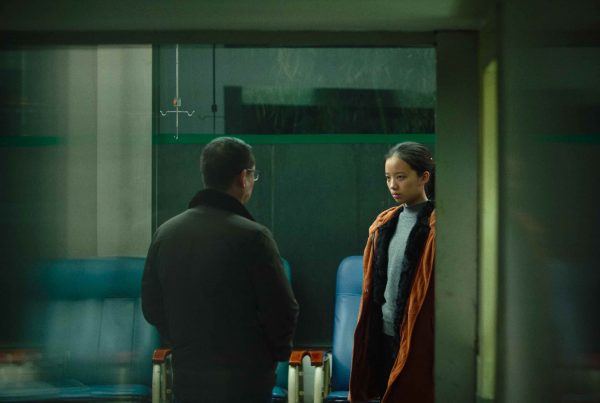
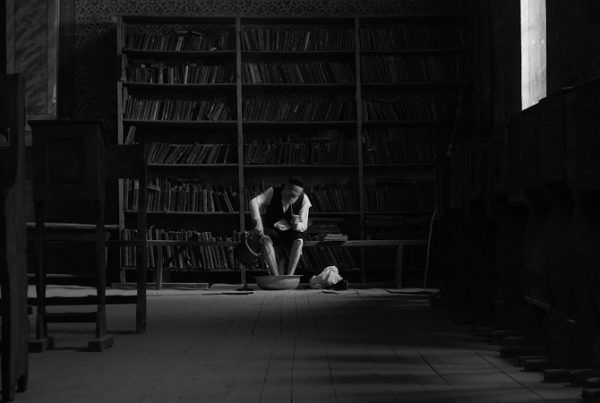

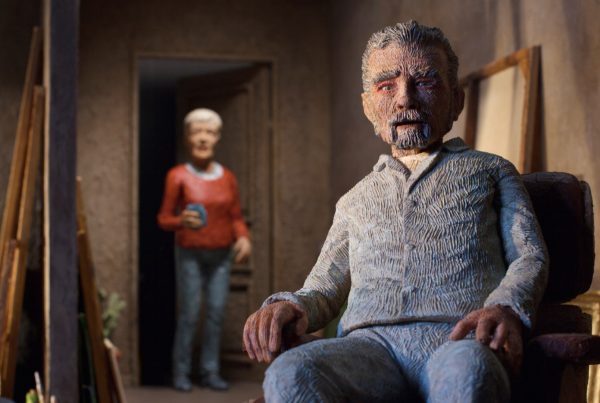
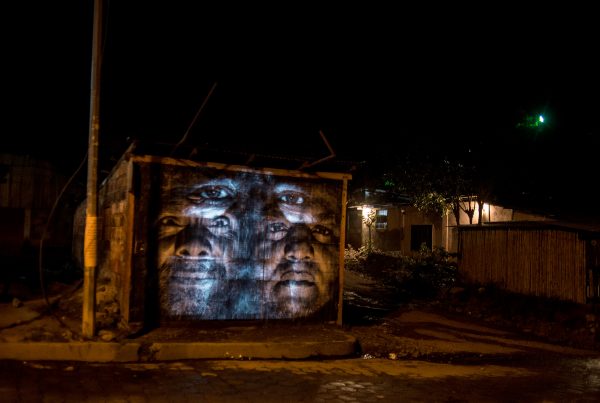
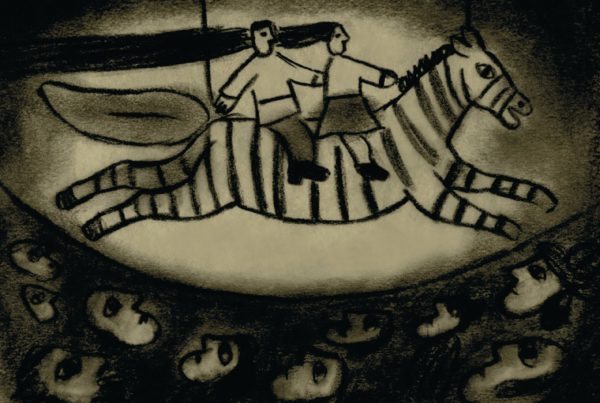
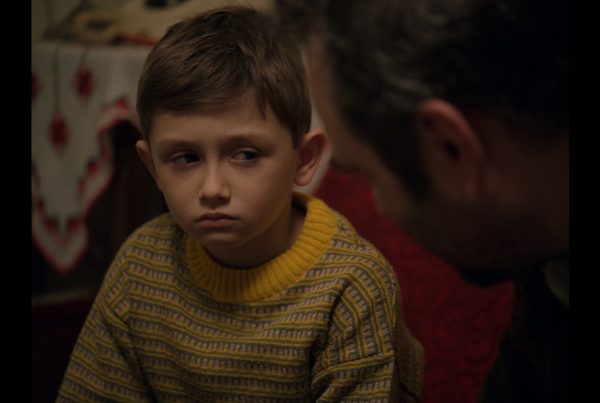






Commenti recenti